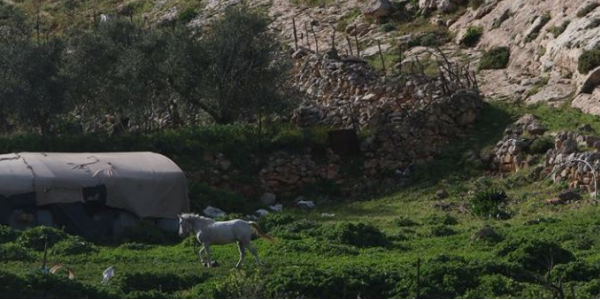حلقة نقاش| السياسات المكانية في فلسطين وخارجها

-
Date10 - Apr 2019
-
Hour18:00 - 20:00
-
Addressالمتحف الفلسطيني, Ramallah, Ramallah & Al-Bireh
-
Views1595
السياسات المكانية في فلسطين وخارجها (تتوفر ترجمة فورية)
بالتعاون مع احتفالية فلسطين للأدب
الأربعاء الموافق 10 نيسان، في تمام الساعة 18:00، في المتحف الفلسطيني.
تحاول حلقة النقاش هذه موضعة سياسات المكان، وآليات السيطرة على الفضاء والحيز في كلّ من الجزائر والباكستان، في سياق السياسات الاستعمارية المفروضة على فلسطين، وسياسات الضم والإقصاء والسيطرة على الفضاء الفلسطيني. تأتي هذه الحلقة على هامش النقاش الذي يسعى معرض "اقتراب الآفاق: التحوّلات الفنية للمشهد الطبيعي" لخلقه عبر إثارة أسئلة جديدة، وتسليط الضوء على علاقة الفلسطيني، أينما كان، بالمكان والأرض وما عليها، المحكومة بالشوق والحب، والمتوترة والمهدّدة بحكم الاستعمار.
المتحدثون:
د. عادلة العايدي- هنيّة
المدير العام للمتحف الفلسطيني، وكاتبة وأكاديمية مختصة في الثقافة الفلسطينية، والفكر العربي الحديث، والفضاءات والممارسات الثقافية. نشرت عام 2017 السيرة الفنية: "فخر النساء زيد، رسامة العوالم الباطنية"، كما أصدرت عام 2008 كتاب: "فلسطين، لا ينقصنا شيء هنا"، وهو أول كتاب يبحث في فلسطين المعاصرة من منطلق ثقافي نقدي وحميمي.
سامية هينّي
كاتبة ومؤلفة مختصة في التاريخ ونظرية العمارة والعمران، تشمل اهتماماتها التعليمية والبحثية تاريخ ونظرية البيئات المبنية بعلاقتها بالاستعمار والنزوح والجندر والعرق والأديان والحروب، منذ الاستعمار الأوروبي الأول وحتى وقتنا الحاضر.
مديحة طاهر
كاتبة ومخرجة من الباكستان، لها فيلم وثائقي قصير يتحدث عن الناجين الباكستانيين من هجمات الطائرات من دون طيار. تعمل للحصول على الدكتوراه من جامعة كولومبيا.
ريما حمامي
أستاذة مشاركة في علم الإنسان في معهد الدراسات النسائية في جامعة بيرزيت، أسست برنامج الدراسات العليا في النوع الاجتماعي والتنمية في عام 1998، وهو أول برنامج للدراسات العليا في الدراسات الجنسانية في المنطقة. تغطي كتاباتها قضايا التنمية والسياسة والفضاء والجندر في سياق فلسطين.
لغرض التنظيم، نرجو التسجيل المسبق من خلال الرابط هنا
http://www.palmuseum.org/contact-us/what-s-on-intimate-terrains
تتوفر مواصلات عامة تصل مباشرة إلى مبنى المتحف في بيرزيت، التكلفة: للحافلات، 5 شواقل، ولسيارات النقل العام (التي تتسع لـ 7 ركاب)، 6 شواقل.
الأوقات: يوميًا عدا الجمعة (إلا في حال وجود فعاليات)، من 9:00 صباحًا وحتى 6:00 مساءً.
Spatial Politics in Palestine and Beyond:
In Collaboration with Palfest
Wednesday, April 10th, 18:00-20:00.
This panel discussion aims to position the spatial politics and the mechanisms of control policies over the space in Algeria, Pakistan, and the US within the context of the settler colonial policies in Palestine. This discussion comes in parallel with the Palestinian Museum’s current exhibition Intimate Terrains: Representations of a Disappearing Landscape, which aspires to raise new questions. The exhibition sheds light on the relationship between Palestinians – in spite of where they are located- their land, and space; a relationship that is governed by longing, love, but, at the same time, confusion and threat because of colonialism.
Adila Laïdi-Hanieh
General Director of the Palestinian Museum. She received her Ph.D. in Cultural Studies from George Mason University. Her doctoral dissertation is titled: Re-articulating the Aesthetic and the Nationalist: The Un-decidable Politics of Contemporary Palestinian Artistic Practices. Her two fields of concentration were theories of ideology and postcolonial studies.
Samia Henni
An author specialized in history and theory of the built environment in relation to colonialism. Her teaching and research interests include displacement, gender, race, religions, and wars from the first European colonization to the present.
Madiha Tahir
A writer and a filmmaker. She recently directed a short documentary film on Pakistani survivors of drone attacks. She is a doctoral candidate at Columbia University.
Rema Hammami
A founding member of the Institute of Women’s Studies at Birzeit University, where she works as an Associate Professor of Anthropology. Her publications cover a range of themes in the Palestinian context including spatiality of domination and embodied agency, popular movements and NGO-ization, the gender politics of liberal state-building, and neo-humanitarian intervention.
Direct public transportation to the Museum’s building is available,
Cost by bus: ILS 5, by public transit vans: ILS 6.
Frequency: daily except Fridays (unless there are activities), 9:00-18:00.
Departure: Al Hamra Palace, Al-Irsal St., Ramallah